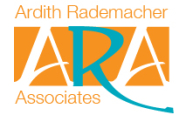The construction industry is rapidly evolving, and one of the key focus areas for many companies is enhancing diversity and inclusion in their hiring practices. A diverse and inclusive workforce not only reflects the community it serves but also brings a variety of perspectives, ideas, and solutions that can drive innovation and success. This blog post explores the importance of diversity and inclusion in construction hiring and provides actionable strategies for creating a more inclusive recruitment process.
The Importance of Diversity and Inclusion in Construction
1. Broader Talent Pool
Diversity in hiring opens up a broader talent pool, allowing companies to tap into a wide range of skills and experiences. By considering candidates from various backgrounds, construction companies can find the best talent available, leading to better project outcomes and organizational success.
Example: A construction firm that actively seeks to hire women, minorities, and veterans can access a wider array of skills and perspectives, enhancing team performance and problem-solving abilities.
2. Enhanced Innovation and Creativity
A diverse workforce brings together different viewpoints and experiences, fostering innovation and creativity. Diverse teams are more likely to generate unique ideas and approaches, which can lead to more effective solutions and improved project outcomes.
Example: A diverse team might approach challenges from different angles on a complex construction project, leading to innovative solutions that a more homogenous team might overlook.
3. Improved Employee Satisfaction and Retention
Inclusive hiring practices can improve employee satisfaction and retention by creating a work environment where all employees feel valued and respected. When employees see that their company is committed to diversity and inclusion, they are likelier to feel engaged and stay with the company longer.
Example: A construction company that promotes diversity and inclusion through training and policies may experience lower turnover rates and higher employee morale.
4. Better Company Reputation
Companies that prioritize diversity and inclusion can enhance their reputation in the industry and the community. A commitment to inclusive hiring practices demonstrates social responsibility and can attract clients, partners, and top talent who value diversity.
Example: A construction firm known for its inclusive practices might attract more business from clients who prioritize corporate social responsibility, as well as talented candidates who seek a supportive and diverse workplace.
Strategies for Enhancing Diversity and Inclusion in Construction Hiring
1. Develop Inclusive Job Descriptions
Craft job descriptions that appeal to a diverse audience by using inclusive language and emphasizing the company’s commitment to diversity. Avoid gendered language and unnecessary requirements that might exclude qualified candidates from different backgrounds.
Example: Instead of requiring specific years of experience, focus on the skills and qualifications needed for the job, making it clear that candidates from all backgrounds are encouraged to apply.
2. Implement Bias Training
Provide bias training for hiring managers and recruitment teams to help them recognize and mitigate unconscious biases in the hiring process. This training can help ensure that all candidates are evaluated fairly based on their skills and qualifications.
Example: Conduct workshops and seminars on unconscious bias, providing tools and strategies for creating a more objective and inclusive hiring process.
3. Partner with Diverse Organizations
Collaborate with organizations and associations that promote diversity in the construction industry. These partnerships can help you reach a wider range of potential candidates and demonstrate your commitment to inclusive hiring practices.
Example: Partner with groups such as the National Association of Minority Contractors (NAMC) or the National Association of Women in Construction (NAWIC) to access diverse talent pools.
4. Create Employee Resource Groups (ERGs)
Establish Employee Resource Groups (ERGs) that support diverse groups within your workforce. ERGs can provide a platform for employees to connect, share experiences, and contribute to the company’s diversity and inclusion efforts.
Example: Create ERGs for women in construction, LGBTQ+ employees, or employees from different cultural backgrounds, providing them with resources and support.
5. Set Diversity and Inclusion Goals
Set specific, measurable goals for diversity and inclusion in your hiring practices. Track your progress and hold your organization accountable for achieving these goals, making adjustments as needed to improve outcomes.
Example: Set a goal to increase the percentage of women and minorities in your workforce by a certain amount each year and regularly review your recruitment and retention strategies to ensure progress.
6. Foster an Inclusive Workplace Culture
Promote an inclusive culture where all employees feel welcome and valued. Encourage open communication, provide diversity training, and celebrate cultural differences to create a supportive work environment.
Example: Organize events and activities that celebrate diverse cultures and provide opportunities for employees to learn about and appreciate different perspectives.
Building a Diverse and Inclusive Future in Construction
Enhancing diversity and inclusion in construction hiring practices is not just about meeting quotas or checking boxes; it’s about building a stronger, more innovative, and more resilient workforce. By developing inclusive job descriptions, implementing bias training, partnering with diverse organizations, creating ERGs, setting diversity goals, and fostering an inclusive workplace culture, construction companies can attract and retain top talent from all backgrounds.
A commitment to diversity and inclusion can lead to better project outcomes, improved employee satisfaction, and a stronger reputation in the industry. By prioritizing these efforts, construction companies can build a brighter and more inclusive future for their workforce and the communities they serve.









